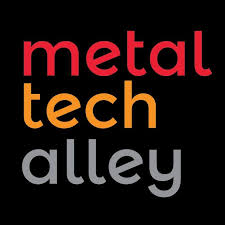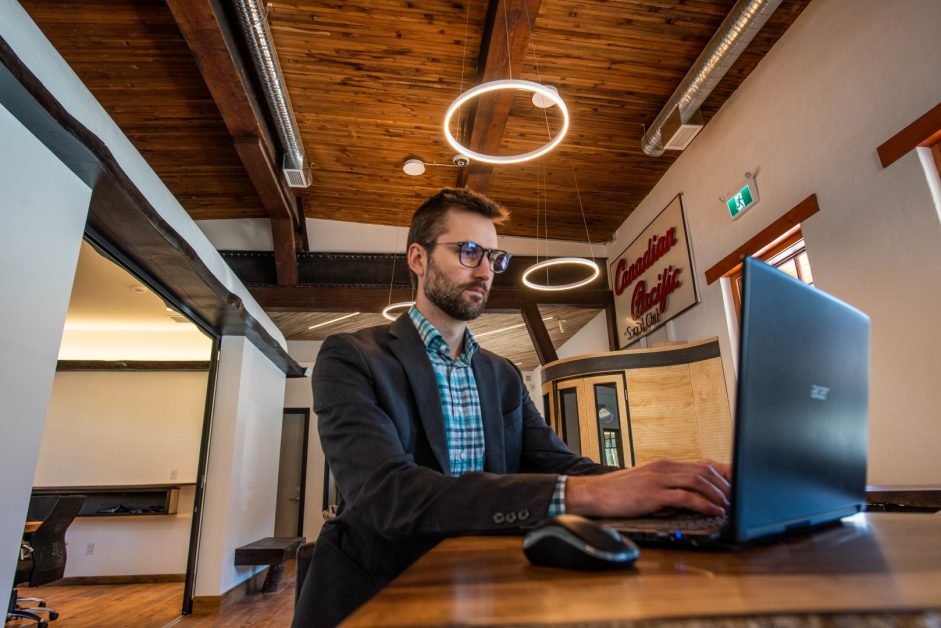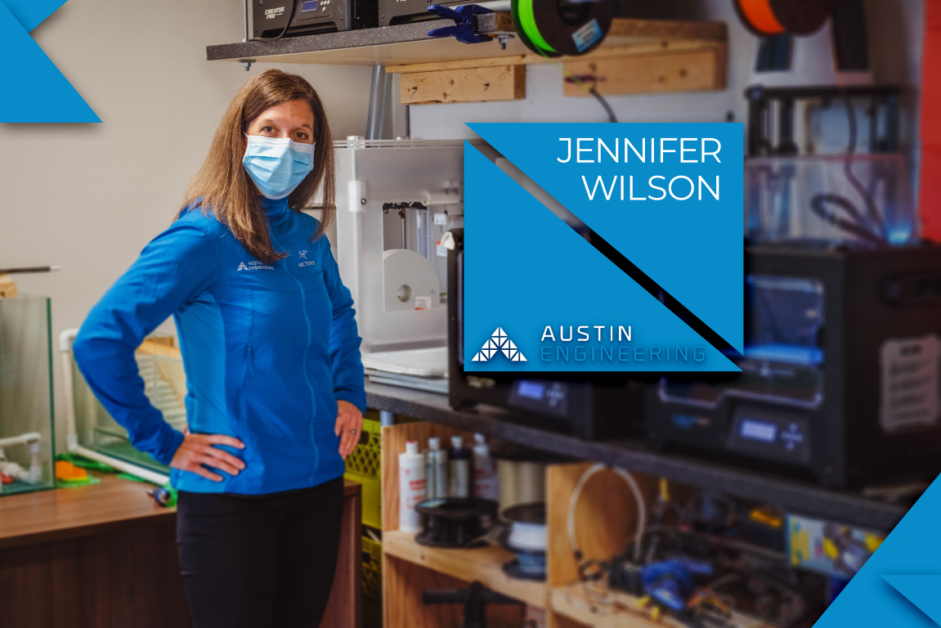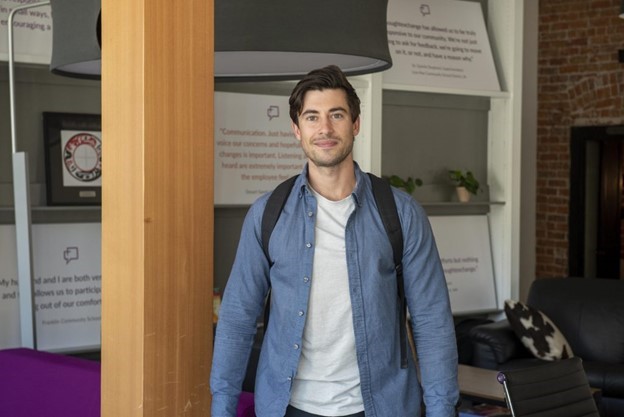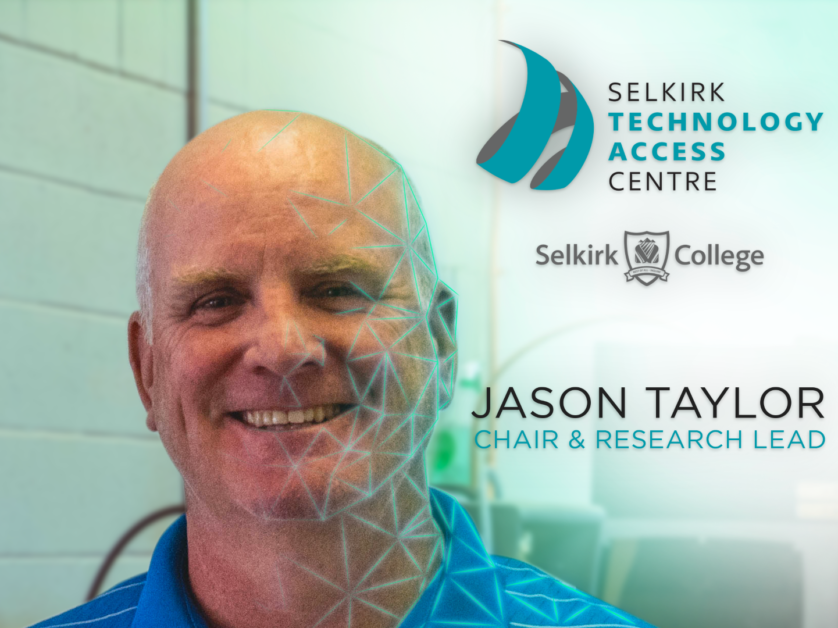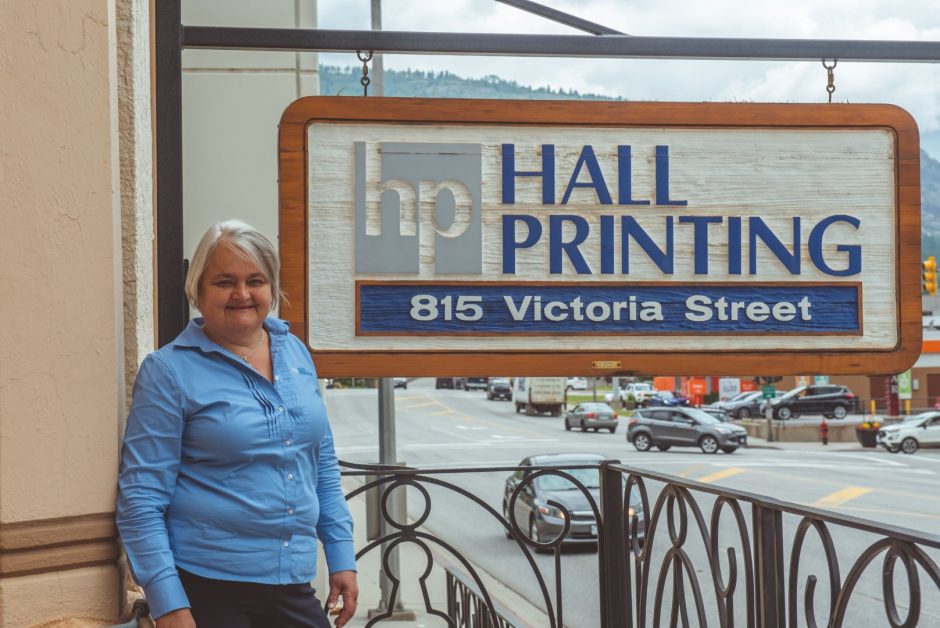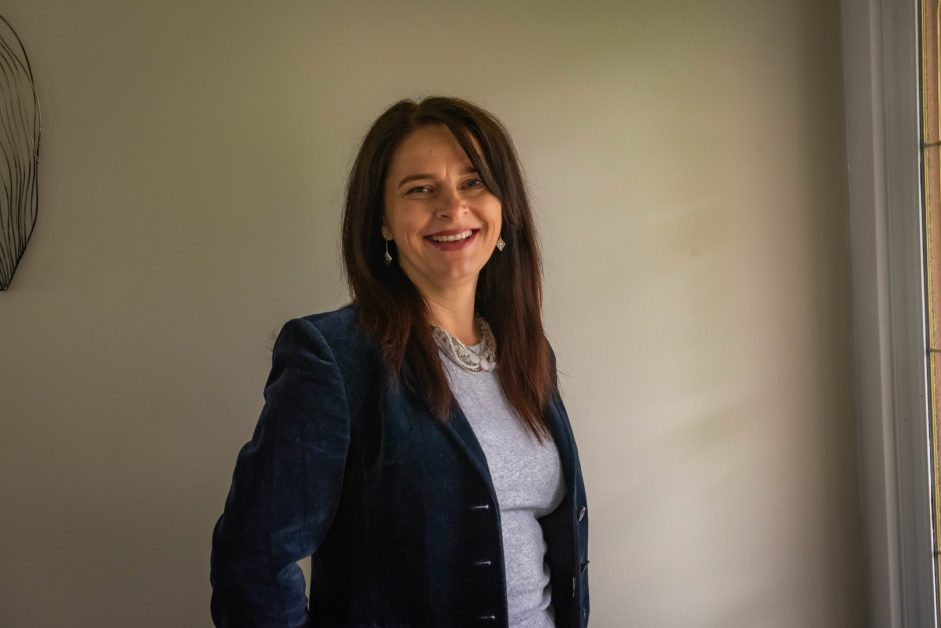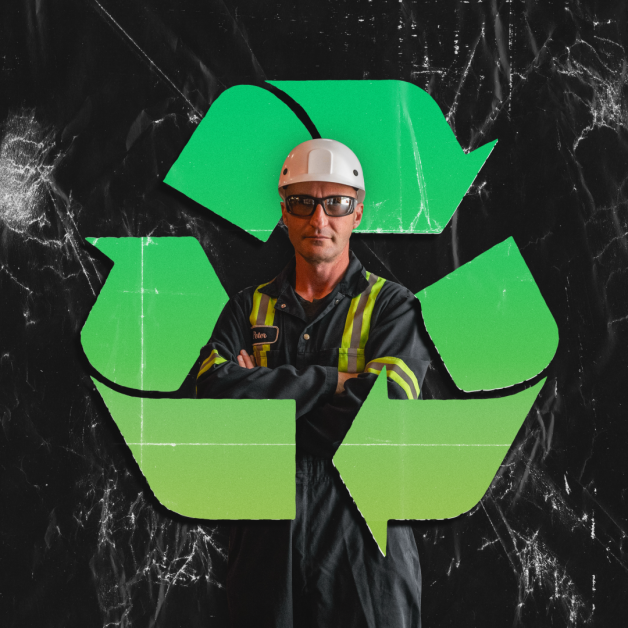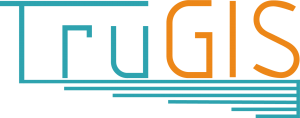A recognizable acronym can be an indicator of success. Enter KAST, or the Kootenay Association for Science & Technology. The innovation hub is the only rural tech association in Canada, and it’s situated proudly in the Kootenay region’s Metal Tech Alley. At the helm is Executive Director Cam Whitehead, who left city life behind to bring his skills in government relations, stakeholder engagement, and data science to a leadership role within the area’s growing tech community. Cam is energetic, with a positive outlook and can-do attitude. He’s working to transform the Lower Columbia and surrounding area into a healthier, more sustainable community. His approach to business embraces a better-together philosophy; as he promotes the rural tech sector as a united front, he invites all Kootenay business owners to become KAST members – because tech is an increasingly critical facet of business. Whether you’re in start-up mode or well-established, Cam’s certain an innovation ecosystem that works as one is valuable. He’s recently relocated from his office to work from the back deck of his Nelson home, where he can watch his children play in the distance. While technology is now embedded in all aspects of business, Cam also values his time away from the buzz. His lifestyle is lavish in recreational variety and opportunity, and he’s dedicated to building a future that preserves access to those aspects of Kootenay life for generations to come.
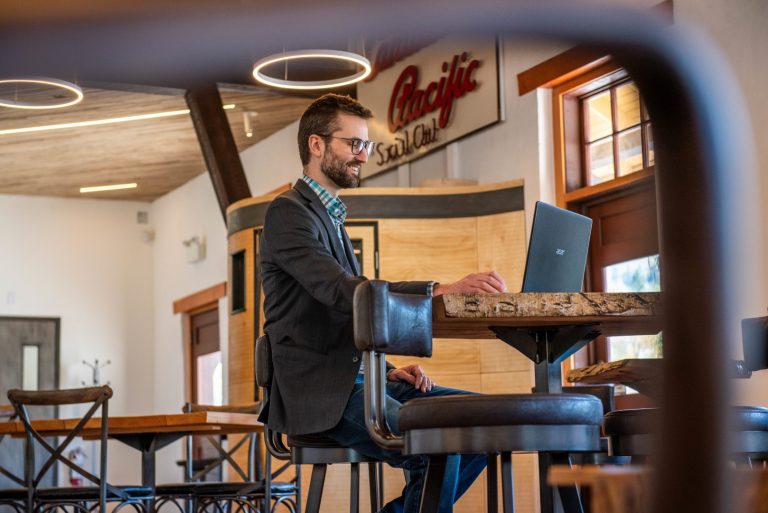
Tell us about the role KAST plays in the community.
KAST is a non-profit association governed by a board of directors that has been in the West Kootenay Boundary community since 1998. We’re a regional innovation council; our role is to accelerate people and projects. We have skills training, and we do K-12 programming for kids to get them interested in science and technology. We also have the Venture Acceleration Program (VAP) and various other business supports. At its core, VAP is a highly subsidized business mentorship program. Participants get weekly hour-long meetings with a professional business coach – we call them entrepreneurs-in-residence (EIRs). At our quarterly reviews, we have our entire panel of EIRs and their peer networks go through relevant topics; our most recent focus was on survival and cash flow, fitting for our current circumstances. It’s a really great group who are all going through the same experiences, and it provides business networking, mentoring, and community resources that you wouldn’t otherwise have should you do it alone. One of our EIRs recently said it takes a village to raise a child, but it takes an entire ecosystem and network to build a company.
As for projects, we’ve accelerated things like the MIDAS Lab – now Selkirk Technology Access Centre (STAC) – and, more recently, the Nelson Innovation Centre. We’ve collaborated on lots of other projects with nonprofit groups, government, and First Nations, too.
Speaking of the current circumstances, how have KAST and its business community pivoted during the COVID-19 pandemic?
Our business programs have always been virtually enabled, so we’ve been able to continue some operations. Being rural and having distributed populations has been a big advantage. This spring we had volunteers working with community members and industry professionals to provide immediate stop-gap response measures to address shortages of things like PPE at local hospitals. We’re really proud of that. It’s mostly been led by community members, but the capacity was something that MIDAS (now STAC) had a lot to do with. 3D printing knowledge, quick micro-manufacturing, and rapid prototyping are all things we’ve trained over 400 people on during the lifespan of the project. Those lasting legacy skills have had a really positive impact.
Because we’re a tech-enabled advocate for small businesses, we’ve also been speaking a lot with ministers, governments, and the Columbia Basin Trust to make sure that the voice of the rural tech sector – we’re the only rural tech association in Canada that I’m aware of – is being considered.
Recently, we launched our new Digital Marketing Lunch & Learn series with Megan Adams from Mountain Hub in Invermere. These webinars provided training for people and businesses on setting up an online store, creating a content strategy to grow their online presence, and improving SEO to reach their customers. Now’s the time to radically reassess the way people are doing business. Our role is basically to try to help people navigate this overwhelming time of change. We have new workshops and training in the works and will be announcing them soon.
Finally, we just completed the first Kootenay Virtual Connection Day with B.C. Tech Association where we helped dozens of non-tech Kootenay businesses receive free consultations with technology experts in the areas of remote working, ecommerce, and digital marketing. The event was very well received and we’re thrilled to help our local businesses pivot and potentially survive a very disruptive event.
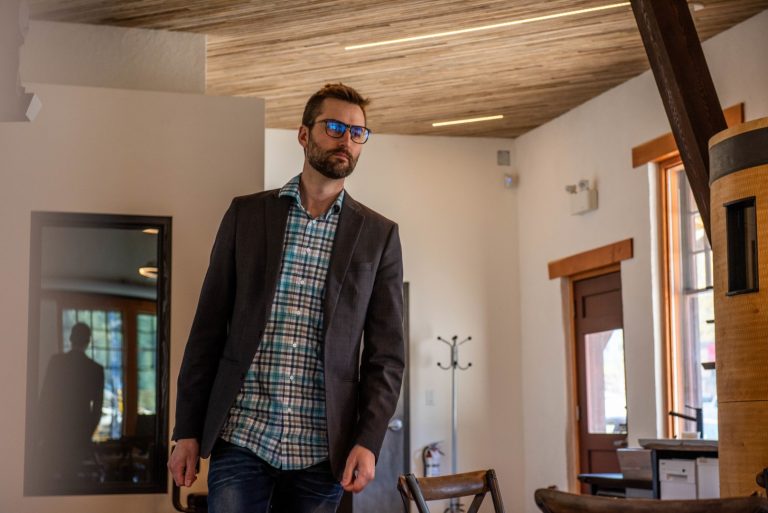
Given the sudden change in business landscape, how do you think COVID-19 is going to impact regional business?
That’s the question of the day, isn’t it? It’s a massive disruption. There are companies that will perish, others will pivot, and some will persevere – the great Ps. It’s going to create a new era. Many companies are finding out that having their employees work from home is not so bad; maybe there’s a balance there. There are a lot of companies saving money by decreasing their office admin footprint. That might make for some pretty significant changes to how people do business.
This is a forced culture change, and it’s really unpleasant or uncomfortable for many. But in tech, we live in the disruption. It’s a little more comfortable for us. But if you’re pre-revenue or you’re trying to scale up right now, it’s definitely still painful. We’re trying to help small businesses not just survive, but maybe even find new ways to jump into the new information-based digital economy and make themselves profitable. There’s always opportunity in times of massive change, but it can be difficult to keep your head up. Many are re-prioritizing and focusing on fundamentals, and I think concentrating on the local environment, family, and community could have a really positive impact.
Community and technology are important now more than ever; it’s important to not lose touch. Networks can still be built digitally. I encourage people to join a community group, whether it’s KAST or another one. It certainly won’t hurt, and might even help you get through this. We’re all in this together. I think that it’s a very good time to think about your community and to start thinking about the future.
Let’s go back to the transition from MIDAS to STAC for a moment. Can you bring me up to speed on what the move into the new facility means?
It’s a great example of where we took community interest in a maker space and secured federal research funding to build a fabrication lab. Our role was to get it going; having Selkirk College take over and expand is fantastic. It’s much bigger than was ever conceived; it’s probably been a conduit for funnelling close to $5 or $6 million into the community, and we’re very proud it’s a lasting legacy. MIDAS, home to the first metal 3D printer for rural Canada, will continue to thrive as STAC. With nonprofits like us, project funding comes and goes; you typically have a three-to-five year lifespan. You get funding, and it’s a big splash, but the risk is it becomes a flash in the pan. To have Selkirk College adopt it means long-term sustainability and facility management, and that STAC can continue to support businesses and individuals as a community fixture.
Tell us more about the Nelson tech community.
KAST created the Nelson Tech & Knowledge Workers Facebook group as part of a contract about five years ago; it went into the community and was managed by Community Futures Central Kootenay. Now it’s taken on a life of its own! It has pretty close to 1,000 members, and it’s not just in Nelson; it’s spread to include people from Rossland, Trail, Castlegar, Salmo – even as far as Kaslo and Nakusp.
The new Nelson Innovation Centre is a related project; it’s a technical hub and concierge service that responds to the changing needs of that group. It’s a place where we connect businesses and people to the support they need, like connecting somebody that needs a job to an employer that’s desperate for talent. Right now that’s especially important; we have some companies that are failing spectacularly – like zero revenue – and others that are hiring, because they’re scaling up. There are a lot of knowledge workers, and a lot of solopreneurs and digital nomads here. Community Futures Central Kootenay and the Nelson & Area Economic Development Partnership, which includes the City and the Chamber, saw the demand and secured a bunch of money over three years to get it started; I then saw the opportunity to take it across the finish line. We took over project management in April of last year, basically doubled the amount of money that was available, and have built it out in partnership with them.
A lot has happened at KAST in the past year and a half you’ve been leading the organization. Was there a specific direction you took when you started there?
When I joined, my prerogative was to make KAST a regional player that expanded to include the East Kootenay. So now we represent the entire Columbia Basin plus Grand Forks – it’s a large area. That approach has helped us unlock what I call systemic investments. Since I’ve come on, we’ve brought close to $2 million into the community that wouldn’t have otherwise been here – and I’m really proud of that. In the Kootenays we have lots of really cool, eclectic towns; in order to foster collaborative ecosystem development, our approach has been to go one level up and become a regional voice to unite those eclectic communities. It makes us all much stronger as a group than we’d be on our own. In order to access big grants and drive systemic change, we have to be working together.


